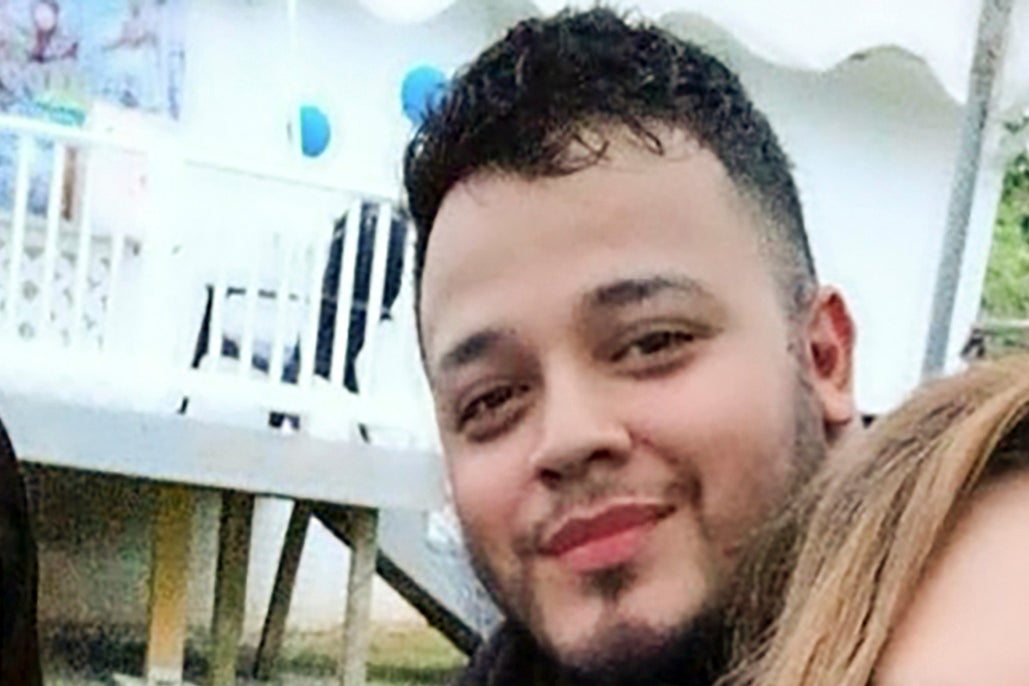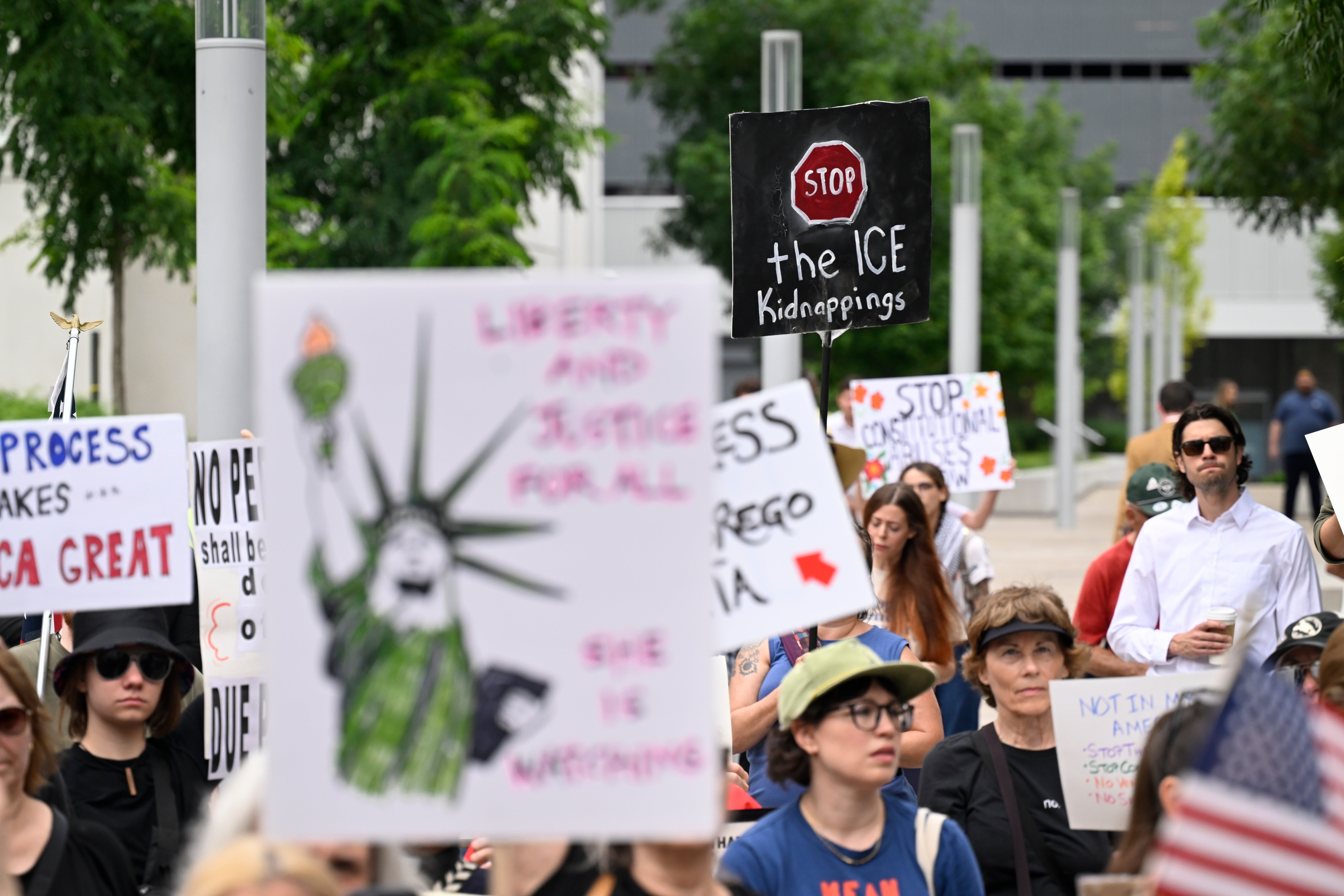New legal filing details graphic ‘torture and abuse’ of Kilmar Abrego Garcia in El Salvador prison

Lawyers for Kilmar Abrego Garcia have detailed the “severe mistreatment” and “torture” he experienced during his month-long detention inside a notorious El Salvador prison, in a renewed lawsuit challenging his wrongful removal from the United States.
His attorneys say the 29-year-old Salvadoran immigrant was subject to “severe beatings, severe sleep deprivation, inadequate nutrition, and psychological torture” at the facility, where lawyers for President Donald Trump’s administration have admitted he was mistakenly sent in March before a weeks-long legal battle to keep him imprisoned there.
Abrego Garcia was abruptly returned to the U.S. to face a federal criminal indictment accusing him of smuggling undocumented migrants across the country, allegations that were only raised after he was removed. He has pleaded not guilty.
The new legal filing follows ongoing debates among attorneys, judges and the Department of Justice over whether Abrego Garcia should remain in jail before trial as lawyers for the government threaten to deport him as soon as he is released from custody.
When he arrived in El Salvador on March 25, still in chains, two officials grabbed his arms and pushed him down the stairs from the airplane, according to the new complaint.

He was “forcibly seated” on a bus and placed in a second set of chains and handcuffs, then “repeatedly struck by officers when he attempted to raise his head,” the filing states.
Upon arrival at the Terrorism Confinement Center, officials told Abrego Garcia and other detainees, “Welcome to CECOT. Whoever enters here doesn’t leave.”
He was then “forced to strip, issued prison clothing, and subjected to physical abuse including being kicked in the legs with boots and struck on his head and arms to make him change clothes faster,” according to the filing.
Prison workers shaved his head and “frog-marched” him into a cell, striking him “with wooden batons along the way,” lawyers wrote. By the following day, “Abrego Garcia had visible bruises and lumps all over his body,” they said.
He shared a cell with 20 other Salvadorans, who were “forced to kneel” from 9 p.m. to 6 a.m., “with guards striking anyone who fell from exhaustion,” according to the complaint.
“During this time, Plaintiff Abrego Garcia was denied bathroom access and soiled himself,” the filing states. “The detainees were confined to metal bunks with no mattresses in an overcrowded cell with no windows, bright lights that remained on 24 hours a day, and minimal access to sanitation,” it claims.
After one week at the facility, the prison director and other officials separated 12 Salvadoran men, with what they said were gang-related tattoos, from a group of 21 detainees. Abrego Garcia remained with eight others “who, like him, upon information and belief had no gang affiliations or tattoos.”
It was at this time that prison officials “explicitly acknowledged” that Abrego Garcia’s tattoos were not gang-related and told him “your tattoos are fine,” according to the complaint.
Prison officials repeatedly threatened to move him to cells where gang members would “tear” him apart, lawyers wrote.
Abrego Garcia “repeatedly observed prisoners in nearby cells who he understood to be gang members violently harm each other with no intervention from guards or personnel,” the filing states. “Screams from nearby cells would similarly ring out throughout the night without any response from prison guards on personnel.”

After three weeks inside the prison, and after losing 31 pounds, Abrego Garcia and four other detainees were transferred to another part of the facility, “where they were photographed with mattresses and better food — photos that appeared to be staged to document improved conditions,” according to the complaint.
Nearly one month after he was deported, Abrego Garcia was transferred to a prison that explicitly did not house known gang members.
At Centro Industrial, “Abrego Garcia was frequently hidden from visitors, being told to remain in a separate room whenever outside visitors came to the facility,” according to the complaint.
He was denied communication with his family and access to legal counsel throughout his detention, until he met with Maryland Senator Chris Van Hollen on April 17.
Abrego Garcia fled El Salvador when he was 16 years old and illegally entered the U.S. He was living and working in Maryland with his wife and child, both American citizens, and two children from a previous marriage.
Federal judges and a unanimous Supreme Court ordered the Trump administration to “facilitate” his return after government lawyers admitted in court documents that he was removed from the country due to a procedural error. A 2019 order from an immigration judge had blocked his removal to El Salvador over humanitarian concerns.
The government spent weeks battling court orders while officials publicly said he would never step foot in the U.S.
After spending three months inside those El Salvador jails, Abrego Garcia was returned to in June following a federal grand jury indictment accusing him of illegally transporting immigrants across the country.




:max_bytes(150000):strip_icc()/milly-alcock-house-of-the-dragon-052025-eb9837e763b84712befe29c69ae73761.jpg?w=390&resize=390,220&ssl=1)